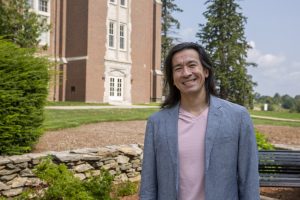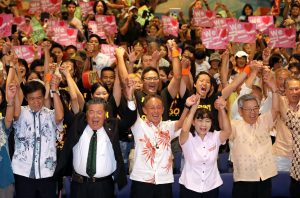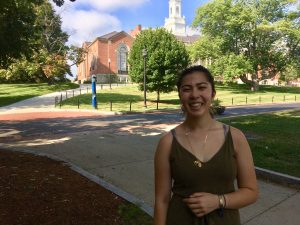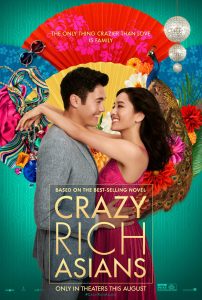
Associate Professor of History and Director of the AAASI
(Bri Diaz/UConn Photo)
Welcome to the Asian and Asian American Studies Institute where we believe Asian American Studies and Asian Studies are exciting and important fields necessary to understanding our world today. Through our courses you can minor in Asian Studies and/or Asian American Studies. These 15 credit minors are fantastic complements to almost any other degree track. Our plans of study are excellent programs because they are applied fields grounded in the history, culture, and politics of Asian Americans, the fastest growing immigrant group in the U.S. and Asia, the largest region of the planet in which most of the world’s population lives. This academic year, we are embarking on an ambitious and bold three year project to integrate the arts into our research and teaching through the generous grant support of the SCHARP Breakthrough grant. We will make several new steps on this path beginning with faculty arts initiatives, the use of arts pedagogies in the classroom, an artist-in-residence programs and an annual “Asian/American Aesthetics” spotlight lecture.
These changes at the institute are synonymous with the larger discussions in the field of Asian American Studies about how this interdisciplinary field of study continues to evolve, grow, and develop new relationships with the study of Asia. This fall we assembled a Summit for the “East of California” group of Asian Americanists to re-imagine how Asian American studies programs can address the concerns of vulnerable scholars, deploy arts-based techniques, reorganize our institutional spaces, negotiate the conditions of “minimal inclusion” practiced in the contemporary university, and experiment with our syllabi to bring today’s headlines and the fault lines of our scholarly field to bear upon the classroom.
The Asian and Asian American Studies Institute has made significant changes to our curriculum incorporating courses from across the College of Liberal Arts and Sciences and the School for Fine Arts. As part of this curriculum shift the institute will organize a featured event each semester to highlight different applied aspects of the minors’ in Asian Studies and Asian American Studies. In Fall 2019 we hosted a forum on Basketball in Asia, featuring players, a recruiter, journalist, and scholar. The forum highlights the importance of understanding inter-Asia, trans-Pacific, and U.S.-Asia history and politics to comprehend the stakes of today’s controversies in Hong Kong and how it spills over onto the courts of the NBA. This Spring we will feature a panel of Asian American restaurateurs to highlight the importance of business development for immigrant communities as well as the significance of immigration experiences in shaping how businesses are formed and maintained.
Our faculty continue to pursue exciting and path-breaking research. This year we are highlighting our faculty in a fun series of Research Slams. In these events students can learn quickly what faculty research in-progress looks like through brief 10 minute lighting presentations. From sustainable cities research in India, to the variety of Korean diasporic literature, to the history of territorial disputes in the Gobi Desert, to China’s cultural avant-garde, and the politics of Fukushima Daishi in the Japanese hosting of the Olympic Games our faculty bring real world research into the classroom and work on cutting edge publications that inform the public and shape how we understand the world. Come check us out at our events and in the classroom.
Warm best,
Jason

 Professor Debanuj DasGupta wins prestigious Social Science Research Council Fellowship in TransRegional Studies: Inter-Asian Linkages & Connections. This research focuses on the changing regulations related to LGBT communities across South & SE Asia.
Professor Debanuj DasGupta wins prestigious Social Science Research Council Fellowship in TransRegional Studies: Inter-Asian Linkages & Connections. This research focuses on the changing regulations related to LGBT communities across South & SE Asia. 
